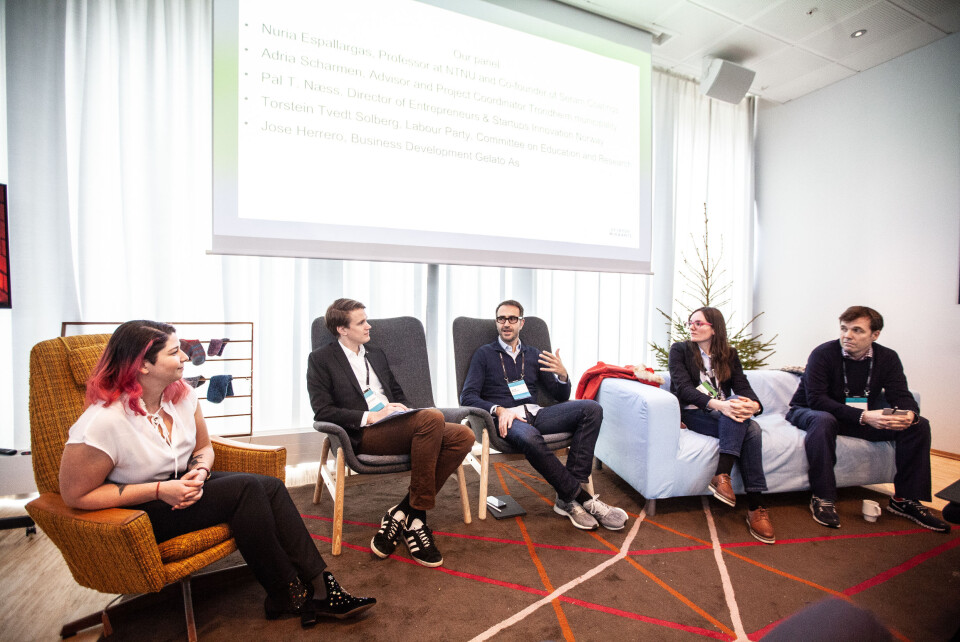
Technoport 2019: How Can We Diversify the Tech Sector?
Todays technology sector already knows the why on diversification, but they struggle with the how, which is the central topic for one of the many panel discussions at Technoport.
Migrants as an innovative group face very different obstacles regarding entrepreneurship compared to the rest of the population.
–Everybody told me it was impossible, which only fuelled my drive to commercialise my research, says professor Nuria Espallargas, at NTNUs Department of Mechanical and Industrial Engineering, and founder of the company Seram Coatings.
She adds that as an international innovator she was in a privileged position. Coming from Barcelona with a PhD, and working at NTNU where she used the infrastructure they have in place to help boost her entrepreneurship.
– To be a migrant and an innovater in Norway is really difficult. This is why it is important with role models and mentors like Nuria, says director for entrepreneur and start up companies at Innovation Norway, Pål T. Næss.
Næss underlines that there are not many policies to attract foreign investors to Norway.
–The positive side of migration is not told so often in Norway. The debate these last years has centred itself around restricting international access into Norway, adds the Labour Party politician Torstein Tvedt Solberg.
He believes it is a paradox that Norway, a small country that lacks many workers with the necessary skills in sectors such as technology, has such a negative focus on migration. He points out that Norway has a lot to offer international innovators, being the welfare state that it is.
Common obstacles
The panel agrees that bureaucracy and paperwork are among the largest practical obstacles that migrants face, particularly if they are not from the EU. Something as simple as opening a bank account or getting a Norwegian phone number can become overwhelmingly complicated. Getting connected with mentors and role models who have gone through this process themselves can greatly reduce this problem.
–Diversity attracts diversity. Migrants often feel that they fit in better in companies or arenas that are more diverse, Senior Vice President of Consumer & Partnerships Jose Herrero at Gelato points out.
He adds that it is much easier to start off with a diverse group of employees when building a company, than to try to diversify a company that is already built with a lack of diversity.
He sees Norway as a country with great potential regarding migrant entrepreneurship, but has observed some scepticism globally towards international innovation in Norway.
Does Norway lack openness?
There exists a stereotype globally that Norway is a country with a lot of smaller, tigh-knit communities that lack openness to new ideas and people from the outside.
–This stereotype is somewhat true. The situation is definetely improving, but it is still an obstacle for some, reflects Herrero.
Language-wise Norway has a large advantage in its populations ability to speak English well.
–Norway is practically a bilingual country, it is a very large advantage for international investors that the majority of Norwegians are so good at English, Espallargas adds.
She emphasises the importance of learning Norwegian, but points out that being able to communicate efficiently from the very beginning, when foreign entrepreneurs have not had time to learn Norwegian yet, eases the integration process significantly.

































